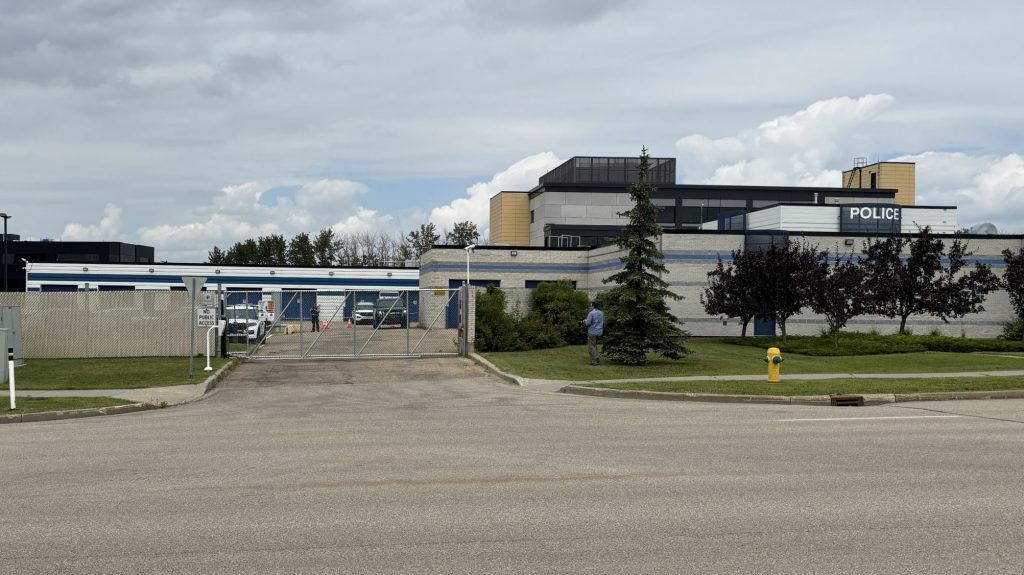Alberta Medical Association calling for more support as hospitals are overwhelmed

Posted December 11, 2023 1:58 pm.
Last Updated December 11, 2023 7:52 pm.
The Alberta Medical Association (AMA) is calling for more support for family physicians and rural generalist clinics to help primary care within the province.
In a letter Monday, Paul Parks, the president of the AMA said, “The AMA is calling for the stabilization of the acute care sector.”
Saying “Simply put, there is a confluence of factors that are driving physicians out of hospitals, and this is negatively affecting Albertans’ access to timely, acute care. We tabled a proposal with government last week to reverse this trend.”
With this, the AMA is looking to reduce wait times in ERs and surgeries.
Parks said hospitals are struggling with overcapacity and “depleted allied health care worker support.”
His letter continued by stating steps need to be taken to make sure the province has available specialists in acute and hospital care 24/7, as well as better admission and discharge management, and adequately staffed teams.
The AMA highlighted during this current cold and flu season, hospital wards that are designed for 30 patients are handling 45 “complex and very ill patients.”
Parks says the AMA has been in discussions with the province to address the urgent needs to retain physicians in acute care. From those discussions, they’ve come up with four key actions:
- Match alternative relationship plan rates to current fee-for-service billing in Alberta.
- Incent after-hours care.
- Provide competitive rates for physician availability.
- Address and remove further compensation reductions.
Health Minister Adriana LaGrange took to X, formerly known as Twitter, and said the health and well-being of Albertans is the province’s top priority, before adding that the province is aware of the overcapacity issues.
“Our urban emergency departments are experiencing increased pressure, but I want to emphasize that no patient has been turned away. Care continues to be provided, with priority given to the sickest patients. There continues to be beds available in our ICUs across the province for Albertans that require it,” read part of the tweet.
Over the weekend during her ‘Your Province. Your Premier’ radio show, Premier Danielle Smith was asked what the province was doing to address hospital wait times, to which she responded “I put that as a priority when I first got elected a year ago.
“I was a bit disappointed to see some regression over the course of the election, and we had to make a more significant change, so there had been several members of the senior executive team that had been let go, and we’ve hired a new head of our Alberta Health Services,” she continued.
“I just ask for you to give us a little bit of time, and I hope that we’ll be able to report back to you within 6 months or shorter, that we’re making major progress. But I agree that what we’ve had right now is unacceptable.”
Meanwhile, AHS says they while hospitals are facing high demand, they are still able to add capacity when needed. Since Thursday, 12 ICU beds have been added.
AHS also notes they have actions already underway to support patient flow. Those actions include; adding beds where possible, increasing staffing, expediting patient moves to appropriate continuing care spaces, and working provincially to coordinate and support patient movement.
“Additional actions are underway to ensure capacity is available for patients waiting for a bed. We are working hard to repatriate patients back to care facilities closer to their homes in order to free up space in our urban hospitals, and in some cases are sending appropriate patients to rural facilities for care,” read a statement from AHS.
“We recognize that decisions like this aren’t easy on families and support systems, but these measures are required in order for us to continue to maintain capacity at our hospitals and deliver timely care to those who need it most.”
Adding, “It is important that Albertans are aware of all care options available and choose the one that best suits them and their families. In some cases, people visit an ED because they don’t know where else to go for care.
-With files from Laura Krause








